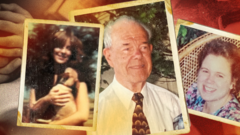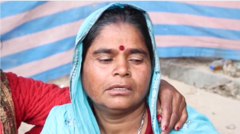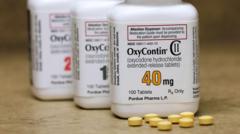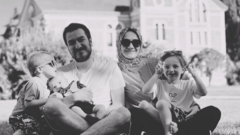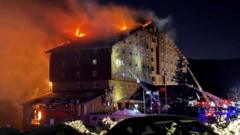In a gripping revelation, Caroline Darian shares the traumatic discovery of her father's long-standing abuse against her mother and the implications of chemical submission. With Dominique Pelicot sentenced to 20 years, Caroline is determined to raise awareness and seek justice for all victims.
Daughter's Powerful Outcry Against Father's Atrocities: A Fight for Justice
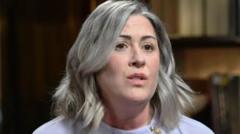
Daughter's Powerful Outcry Against Father's Atrocities: A Fight for Justice
Caroline Darian speaks out against her father's sexual crimes and the issue of chemical submission in a heart-wrenching interview.
Caroline Darian's world was irrevocably changed on a November evening in 2020 when her mother, Gisèle Pelicot, revealed a horrifying truth: Dominique Pelicot, her husband, had been drugging her for a decade to facilitate gang rapes with various men. In an interview with BBC Radio 4's Today programme, Caroline recounted her anguish, stating, “At that moment, I lost what was a normal life.” As she learned more about her father's predatory actions, Caroline found herself grappling with the reality of her father's crimes, which ultimately led to his 20-year prison sentence.
The shocking trial, which lasted three-and-a-half months, uncovered that Dominique had recruited up to fifty men online to assault Gisèle while she was incapacitated. His heinous actions came to light after an incident of upskirting, prompting a police investigation that revealed harrowing evidence on his devices. In the wake of these revelations, Caroline has openly spoken about the issue of chemical submission, where perpetrators utilize drugs to assault their victims, often leaving them without any recollection of the attack.
Despite the trauma stemming from her discovery of her father's abuse, Caroline stands resilient. She has authored a book titled "I'll Never Call Him Dad Again," which chronicles her family's horrific experiences and sheds light on the pervasive issue of drug-facilitated assaults. Caroline is adamant that many victims remain unheard due to the absence of visible proof, stating, "They are not listened to, not supported."
As Caroline reflects on her relationship with her father, whom she now perceives solely as a criminal, she faces a duality as both the daughter of a sexual predator and the offspring of a traumatized victim. She finds healing in advocating for victims and educating others about sexual abuse, particularly among children. Caroline's narrative is anchored in her resolve to ensure that the terrifying fate of chemical submission is acknowledged, and ultimately prevented, for others.
Looking ahead, Caroline finds comfort in her supportive family and is focused on making a difference for future generations. Despite the burdens imposed upon her by her familial legacy, she refuses to be defined by her father's sins. Her message is clear: "I am totally different from Dominique," she declares, as she embarks on her journey of empowerment and advocacy to transform her trauma into a movement for justice and awareness.


